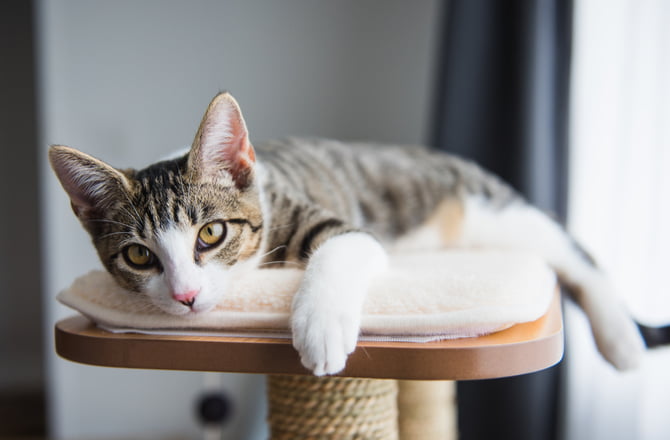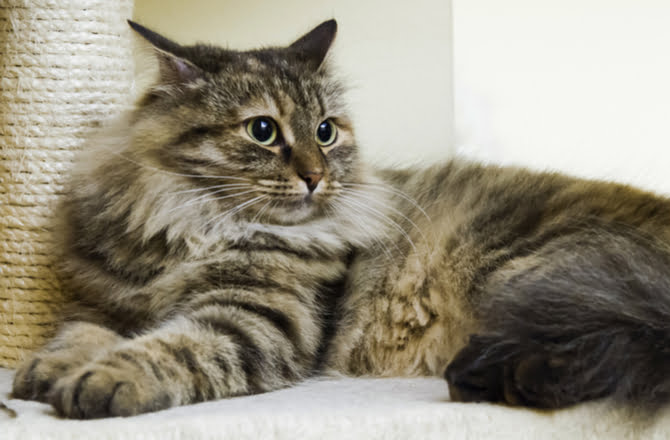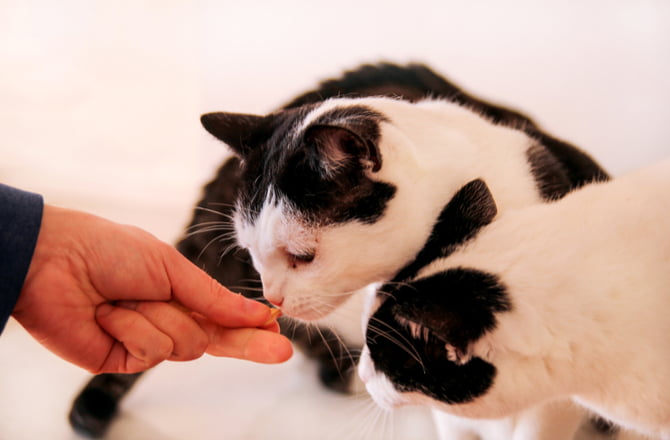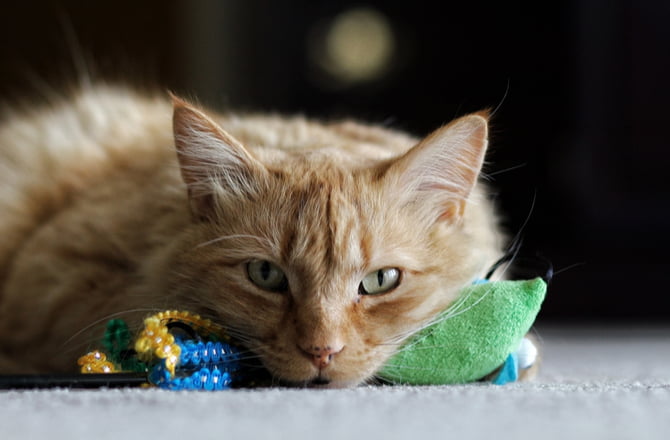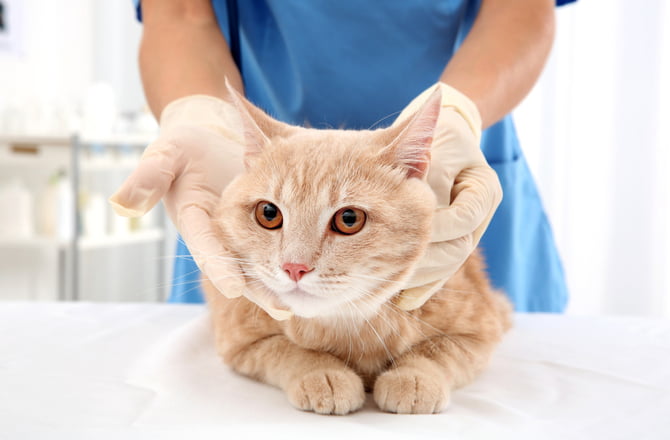Cats can be an enigma of intelligence, sensitivity and perceptiveness. It is such traits that make them endearing and lovable pets. Cats are also very much creatures of habit and to a certain extent, even routine. Cats can also become stressed and/or scared by a wide variety of things including a trip to the vet, being introduced to a new person or a new animal in the house. To determine if your cat is stressed, pay attention to their body language, the size of their pupils (dilated), the movement and direction of their ears and their vocalizations. Once you notice your cat is stressed, here are some tips for calming your cat down.
Be There, Don’t Smother
As humans, we tend to make the mistake of applying human psychology to our cats. A person may seek comfort from a hug. While this might work for some cats, it does not work for all cats as many do not like being handled especially when they are upset. Let your cat set the physical boundaries. If your cat wants to be near you or sit in your lap, then they will do so. Let them come to you. Otherwise, simply give them space. Just being in your presence may be all your cat requires.
Be Patient
Patience is always key when working with cats (or any animals for that matter). Again, our species is the worst in the animal kingdom at exercising this principle. Our non-human counterparts however, excel at waiting. If your cat is stressed, be patient in calming them. Another important thing to remember is to take things slowly. This is especially true when introducing your cat to a change like a new person, a new pet or a new space. Shocking your cat into a new situation typically does not work. Acclimating them to change has to be done gradually.
Safe, Cozy & Vertical
Cats can be fearful of large open spaces which is why providing your cat with a cozy spot where they can retreat in times of stress is important. Some cats take refuge in high places. Accordingly, providing your cat a high vertical space like an elevated bed or elevated cat condo is ideal.
Keep Essentials Accessible
One common mistake we make as people is in not taking care of our cats needs in a cat-centric way. In other words, we fail to do things that are in the best interest of our cat, putting our needs and/or the needs of our home first. Find out which places your cat is most comfortable eating and drinking, and try to accommodate them accordingly. The same goes for their litter boxes.
Spread The Scent
Cats like leaving their scent on things around them and in the home through facial rubbing and scent marking with their paws. Having their own scent around can be very calming for cats in times of stress. Allowing your cat to leave their scent in places they care about and on things they like, e.g., scratching posts, toys, etc., are recommended practices.
Soft Music / White Noise
Besides scent, cats are very sensitive to sounds. Whereas loud noises like traffic or a baby crying can cause stress, other more soothing sounds can provide calm. Soft classical music or pleasant white noise especially in your cat’s favorite room can not only reduce the impact of scary noises, but also increase the sense of calm.
Anti-Anxiety Treats
There are treats, supplements and medications with an anxiety-relieving ingredient found in green tea known as L-theanine. Herbal supplements are another option. Such methods of combating your cat’s anxiety can be particularly useful if your cat loves to eat. Always talk with your veterinarian before trying any such products.
Regular Play
While play is not recommended when your cat is in a stressed or aroused state, it is a great way to combat chronic or long-term stress. Just as with us, exercise and play reduces stress in cats. Interactive play with a lure toy can be quite effective in not only decreasing stress, but also in acclimating cats to large rooms or unfamiliar environments in which they are afraid.
Find the Root of the Problem
If your cat is experiencing severe and/or chronic stress, closer analysis relative to the primary cause or causes is essential. Regular visits to your veterinarian are crucial. You may even want to consider utilizing the services of a certified cat behavior consultant.
This article was adapted from a story in Pet MD by Maura McAndrew titled “10 Helpful Ways to Calm Your Cat.”



